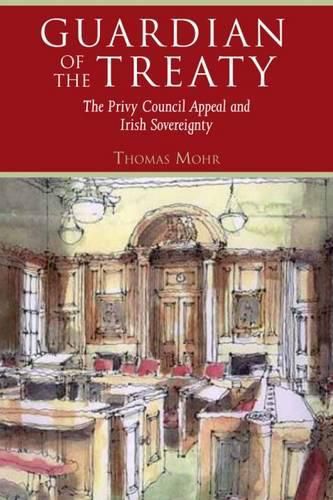Readings Newsletter
Become a Readings Member to make your shopping experience even easier.
Sign in or sign up for free!
You’re not far away from qualifying for FREE standard shipping within Australia
You’ve qualified for FREE standard shipping within Australia
The cart is loading…






The Judicial Committee of the Privy Council was the final appellate court of the British Empire. In 1935 the Irish Free State was recognized as the first part of the empire to abolish the appeal to the Privy Council. This book examines the controversial Irish appeal to the Privy Council in the wider context of the history of the British Empire in the early 20th century. In particular, it analyses Irish resistance to the imposition of the appeal in 1922 and attempts to abolish it at the Imperial conferences of the 1920s and 1930s. The book also examines the various means by which the Oireachtas attempted to block appeals from the Irish Supreme Court. In addition, this work examines the contention that the Privy Council appeal offered a means of safeguarding the rights of the Protestant minority within the Irish Free State. Finally, it reveals British intentions that the Privy Council act as the guardian and enforcer of the integrity of the Anglo-Irish settlement embodied in the 1921 Treaty. The conclusion to this work explains why the Privy Council was unsuccessful in protecting this settlement.
$9.00 standard shipping within Australia
FREE standard shipping within Australia for orders over $100.00
Express & International shipping calculated at checkout
The Judicial Committee of the Privy Council was the final appellate court of the British Empire. In 1935 the Irish Free State was recognized as the first part of the empire to abolish the appeal to the Privy Council. This book examines the controversial Irish appeal to the Privy Council in the wider context of the history of the British Empire in the early 20th century. In particular, it analyses Irish resistance to the imposition of the appeal in 1922 and attempts to abolish it at the Imperial conferences of the 1920s and 1930s. The book also examines the various means by which the Oireachtas attempted to block appeals from the Irish Supreme Court. In addition, this work examines the contention that the Privy Council appeal offered a means of safeguarding the rights of the Protestant minority within the Irish Free State. Finally, it reveals British intentions that the Privy Council act as the guardian and enforcer of the integrity of the Anglo-Irish settlement embodied in the 1921 Treaty. The conclusion to this work explains why the Privy Council was unsuccessful in protecting this settlement.